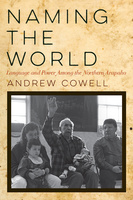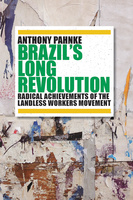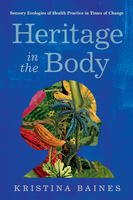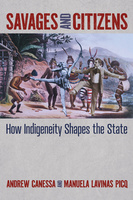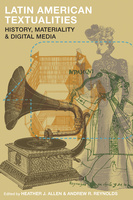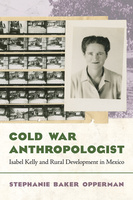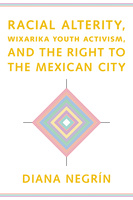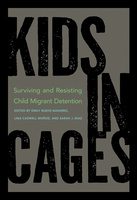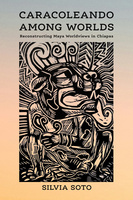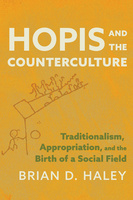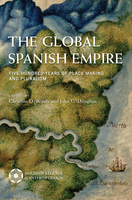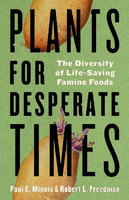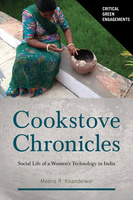The University of Arizona Press is the premier publisher of academic, regional, and literary works in the state of Arizona. They disseminate ideas and knowledge of lasting value that enrich understanding, inspire curiosity, and enlighten readers. They advance the University of Arizona’s mission by connecting scholarship and creative expression to readers worldwide.
The Documented Child
Migration, Personhood, and Citizenship in Twenty-First-Century U.S. Latinx Children's Literature
Looking at picture books and middle-grade and young adult literature written from 1997 to 2020, The Documented Child demonstrates how the portrayal of Latinx children has dramatically shifted and discusses how these shifts map onto broader changes in immigration policy and discourse in the United States.
Blue Corn Tongue
Poems in the Mouth of the Desert
Blue Corn Tongue is a like mixtape from a thirty-something Diné punk girl. It offers poetry about love, friendship, environmental destruction, and language loss.
Naming the World
Language and Power Among the Northern Arapaho
Brazil's Long Revolution
Radical Achievements of the Landless Workers Movement
Gerard P. Kuiper and the Rise of Modern Planetary Science
Heritage in the Body
Sensory Ecologies of Health Practice in Times of Change
Through storytelling, ethnography, and interviews, this volume examines how Indigenous Maya and Garifuna Belizeans—both in Belize and in the United States—navigate macro-level processes such as economic development, climate change, political shifts, and global health crises in the context of changes in their own lives. Employing an embodied ecological heritage (EEH) framework, this work explores the links between health and heritage. It offers insights into how heritage practices become embodied as ways to maintain and support happy, healthy lives.
Embodying Biodiversity
Sensory Conservation as Refuge and Sovereignty
This interdisciplinary volume argues for the importance of everyday sensuous conservation and its ability to grow diverse, livable worlds where human embodiment is understood as part of—not separate from—plant life. Contributors argue that the majority of biodiversity conservation worldwide is carried out not by large-scale conservation projects but by ordinary people engaging in sensory-motivated, caretaking relationships with specific plants.
Birds, Bats, and Blooms
The Coevolution of Vertebrate Pollinators and Their Plants
Birds, Bats, and Blooms provides an in-depth look at the ecology and evolution of two groups of vertebrate pollinators: New World hummingbirds and nectar-feeding bats and their Old World counterparts. Alongside engaging prose, this work includes fourteen color photographs of birds and flowers taken by the author.
Unsettling Mobility
Mediating Mi'kmaw Sovereignty in Post-contact Nova Scotia
Since contact, attempts by institutions such as the British Crown and the Catholic Church to assimilate indigenous peoples have served to mark those people as “Other” than the settler majority. In Unsettling Mobility, Michelle A. Lelièvre examines how mobility has complicated, disrupted, and—at times—served this contradiction at the core of the settler colonial project. Drawing on archaeological, ethnographic, and archival fieldwork conducted with the Pictou Landing First Nation—one of thirteen Mi’kmaw communities in Nova Scotia—Lelièvre argues that, for the British Crown and the Catholic Church, mobility has been required not only for the settlement of the colony but also for the management and conversion of the Mi’kmaq.
Savages and Citizens
How Indigeneity Shapes the State
This book takes the provocative view that Indigenous people have been fundamental to how contemporary state sovereignty was imagined, theorized, and practiced. By tracing indigeneity from European philosophers conceptualizing sovereignty during the Enlightenment to Indigenous President Evo Morales in Bolivia, this volume offers new analytical tools to explore indigeneity in contemporary world politics.
Latin American Textualities
History, Materiality, and Digital Media
Cold War Anthropologist
Isabel Kelly and Rural Development in Mexico
This book explores the changing nature of U.S.-Mexican relations, development programs, state efforts of assimilation, the field of anthropology, and gendered experiences in mid-twentieth-century Mexico through the international work of Dr. Isabel T. Kelly (1906–1983).
The Intimate Frontier
Friendship and Civil Society in Northern New Spain
Racial Alterity, Wixarika Youth Activism, and the Right to the Mexican City
Kids in Cages
Surviving and Resisting Child Migrant Detention
This book provides an interdisciplinary perspective of child migrant detention by bringing together voices from the legal realm, the academic world, and the on-the-ground experiences of activists and practitioners. The chapters explore the harms of detention while also looking at survival in and resistance to this violent institution.
Caracoleando Among Worlds
Reconstructing Maya Worldviews in Chiapas
This book focuses on the analysis of the contemporary literary movement of Maya writers of Chiapas. At the heart of this examination is a journey into the trajectory of this literary movement and its connection to the Zapatista Army of National Liberation (or EZLN) insurgency. This work shows two movements that are rooted in shared visions of rescuing, reclaiming, and recentering Maya worldviews.
Hopis and the Counterculture
Traditionalism, Appropriation, and the Birth of a Social Field
This book addresses how the Hopi became icons of the followers of alternative spiritualities and reveals one of the major pathways for the appropriation of Indigenous identities that exploded in the 1960s. Exploring the new social field that developed to spread these ideas, the book documents the biographies of Ammon Hennacy, Craig Carpenter, Frank Waters, and the Firesign Theatre, among others.
The Global Spanish Empire
Five Hundred Years of Place Making and Pluralism
The Global Spanish Empire tackles broad questions about indigenous cultural persistence, pluralism, and place making using a global comparative perspective grounded in the shared experience of Spanish colonialism. Through an expansive range of essays that look at Africa, the Americas, Asia, the Caribbean and the Pacific, this volume brings often-neglected regions into conversation.
Plants for Desperate Times
The Diversity of Life-Saving Famine Foods
Plants for Desperate Times is an introduction to the foods that have saved millions of lives during lethal food shortages. While not a field guide, it addresses questions about what famine foods are and why they are important.
Cookstove Chronicles
Social Life of a Women’s Technology in India
Cookstove Chronicles examines India’s handcrafted, wood-burning cooking stoves, the rural women who use them, and outsiders who try to improve them by engineering a range of “clean” cooking devices. Khandelwal adopts a transnational feminist, anthropological, and STS perspective to reimagine the humble mud stove as both villain and hero of this story and to suggest pathways for collaboration across radical disciplinary divides.




